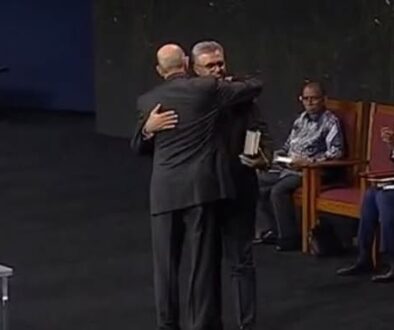SafePoint Challenges Atheistic Sentiment in Czech Republic Through Community
The Czech Republic is largely considered one of the most atheistic regions in the world. Its citizens are taught from an early age to reject religion as a damaging institution designed to control and corrupt through disillusions. Research suggests that many individuals are turning to non-traditional faith practices and spirituality, with young people leading the exodus out of religious institutions. Unsurprisingly, such sentiments are strongest within a nation with a strong communist history. Skepticism towards Christianity has become a national and generational mindset for many Czechs, and Pavel Eder was one of them.
Now an employee of the Bohemian Conference of Seventh-day Adventists in the Inter-European Division, Eder has a unique insight into what it’s like to find God after a lifetime of living in a culture that blamed Christianity and religion as a destructive invention. Eder found community and faith in a small Adventist congregation that felt, as shared in a statement “more like a close-knit family.” As his faith grew, he saw the value of life in Christ and uplifting fellowship, yet as he went deeper into his walk with God, Eder saw that the future of the church’s survival in the Czech Republic was in the hands of the younger generation thus planting the mission for discipleship in his heart.
“Experiencing a deep, meaningful relationship with God through this process shaped my view of mission work. My heart began to burn for those who felt alienated by the church and had not yet been reached by the traditional communication of the Gospel.”
This call led to the birth of SafePoint, a ministry that focused on meeting the needs of younger generations that felt alienated from traditional Adventist culture. Eder began by creating a Christian ministry that adopted an everyman language, making it understandable in layman’s terms, including small groups where people could gather and discuss. In his original statement, Eder states:
“Our goal is to present the Gospel in ways that are relevant to secular-minded people and understandable to younger Generations Z and Y. In short, we started working on a discipleship process tailored to secular young people. And then, miracles started to happen—over and over again!”
SafePoint project didn’t wait for younger generations to find them or create requirements for entry, but engaged with the intent of actively listening to their needs and sharing the Gospel in a tailor-made way. The young church plant works to create a welcoming, healthy community where people can engage online and in real life. Their open approach to discipleship has paid tenfold, reaching individuals of every demographic and background. Former drug addicts, local politicians, and students come together as equal Children of God to learn the Gospel and find understanding. Pavel Eder believes that the only way to survive the onslaught of secular skepticism is to be loving, communal, and caring. Investing in emotional, spiritual, physical, and mental health on an individual level is the kind of practical discipleship that Christ calls us to pursue, and it is the anchoring form of discipleship for SafePoint.
Jonathan Contero, associate director of the Center for Secular and Post-Christian Mission at the SDA General Conference, said, “SafePoint is a relevant answer to what young adults in Prague is asking, in their language: community, intimacy, connection with God.” The church project has thrived over almost two years and has outgrown its space, with a steading influx of secular-minded individuals coming with curiosity, becoming invested in church activities, and being baptized. From its original six founders to the growing community of 70 people, SafePoint is continuing its pursuit of challenging the atheistic identity within the Czech Republic through a loving community.




